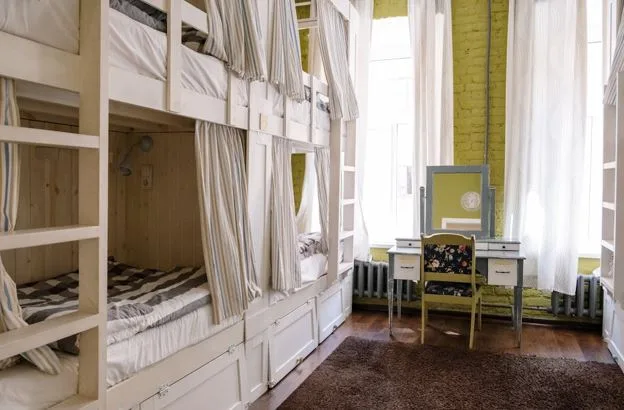Finding the Right Accommodation as a First Year Student
Starting university is a huge milestone in life, and for many students, it also means moving out and finding a place to live on your own for the first time. Choosing the right accommodation is more than just picking a place to sleep it affects your comfort, budget, lifestyle, academic focus, and social experience. As a first-year student, making the right decision can help set the tone for a smooth transition into university life.
To help you make an informed choice, here are practical steps and considerations to guide you in finding the best accommodation during your first year.
- Understand the Types of Accommodation Available
Before you start looking, it’s important to understand the different types of student accommodation. University halls of residence are usually the most popular option for first-year students. These are managed by the university and often located on or near campus, making them convenient and safe. They typically include utility bills, basic furnishings, internet access, and maintenance.
Private halls are similar to university-managed halls but operated by private companies. They tend to offer newer facilities and amenities like gyms, study rooms, and social areas, though they can be more expensive.
Shared houses or flats give you more independence and are often rented through letting agents or directly from landlords. These can be more affordable in some cities but require more responsibility, including managing utility bills, council tax exemptions, and maintenance.
Living at home is another option if your university is nearby. This can save a lot of money and help with the transition, but it may limit your social experience compared to living with other students.
- Consider Location and Accessibility
Location is key when it comes to student accommodation. Ideally, you want to live somewhere close to campus so you can save on travel time and transport costs. If the accommodation is further out, check how reliable the public transport is, including bus and train routes and late-night options.
Also consider how close the accommodation is to supermarkets, healthcare, libraries, gyms, and social spots. Convenience can make a big difference in your day-to-day life, especially during busy exam seasons.
Safety is another important factor. Research the neighbourhood, especially if you’re moving to a new city. Most universities can provide guidance on the safest areas for students, and student forums or local advice sites can offer honest reviews. Platforms such as Unifresher.co.uk provide helpful advice on student housing and local insights for different university cities.
- Set a Realistic Budget
Your budget will largely influence your accommodation choice. Before signing any contracts, take a good look at your finances. Calculate how much you’ll have monthly from student loans, parental support, part-time jobs, or savings.
Accommodation is often the biggest student expense after tuition. Make sure to factor in rent, but also other potential costs like utilities, Wi-Fi, transport, food, and personal expenses. Some accommodations are all-inclusive, which helps with budgeting, while others may require you to manage separate bills.
Avoid stretching your budget too thin. It’s important to have some flexibility for unexpected costs, course materials, or social events.
- Start Looking Early
Good accommodation, especially the more affordable or conveniently located options, tends to get snapped up quickly. Universities usually open their housing applications shortly after confirming offers, so it’s wise to start researching and applying as soon as possible.
If you’re considering private housing, begin your search at least 3 to 6 months before the academic year starts. This gives you more choice and time to make a decision without pressure.
Be cautious about scams, particularly with private listings. Never transfer money without viewing the place (or having someone reliable do it on your behalf), and always get a contract in writing.
- Check What’s Included
Not all accommodations are the same when it comes to what’s included in the rent. Make sure you know what you’re paying for. Some important things to check include whether utility bills, internet, and contents insurance are included.
Furnishings are another consideration. Most university and private halls come fully furnished, but shared houses may not. You might need to provide your own bedding, kitchenware, or small appliances.
Laundry facilities are often overlooked but important. Check if there’s an on-site laundry or if you’ll need to visit a laundrette nearby.
- Think About Your Lifestyle
Your accommodation should match your personal habits and social preferences. If you’re someone who needs peace and quiet to focus, it might be better to avoid party-heavy accommodations or areas known for nightlife. On the other hand, if you’re eager to socialise and make friends quickly, being in a lively hall or shared flat can be a great experience.
Consider your daily routines. Do you wake up early? Do you cook often? Do you prefer your own space or enjoy communal living? These questions will help you determine what kind of living environment will work best for you.
Also, check the house rules. Some accommodations have restrictions on overnight guests, noise levels, or decorating rooms. Knowing these in advance will help you avoid any unpleasant surprises.
- Visit if Possible
If you can, try to visit potential accommodations before making a final decision. Photos and descriptions online can be misleading, and a quick tour gives you a real sense of the space, cleanliness, and condition of the property.
During your visit, look at the security features, the surrounding area, the state of the kitchen and bathrooms, and how well the property is maintained. It’s also a good opportunity to ask current tenants about their experience.
If visiting isn’t possible due to distance or timing, look for virtual tours or video walkthroughs provided by the property. Read online reviews, and consider reaching out to other students through university forums or social media groups.
- Understand the Contract Before Signing
Once you’ve found a place, it’s essential to read the tenancy agreement carefully. Understand the length of the contract, payment terms, deposit conditions, and notice period. Know your rights as a tenant, and don’t be afraid to ask questions if something isn’t clear.
If you’re renting privately, you may be asked for a guarantor. This is someone (usually a parent) who agrees to pay your rent if you can’t. Check if there are any fees involved, and make sure you receive a copy of any signed documents.
Universities often offer legal advice for students signing contracts, so make use of this service if you have any doubts.
- Connect with Future Housemates
If you’re moving into a shared space, it’s worth getting to know your potential housemates. Some accommodations let you join social media or WhatsApp groups beforehand. This gives you a chance to introduce yourself, discuss shared responsibilities like cleaning or bills, and set expectations.
Good communication can go a long way in preventing disputes and creating a friendly and respectful living environment. If possible, look for housemates who have similar habits and attitudes toward cleanliness, noise, and socialising.
- Prepare for the Move
Once everything is confirmed, start preparing for the move. Create a checklist of essentials you’ll need, from bedding and toiletries to kitchen supplies and study materials. If you’re living in halls, space may be limited, so avoid overpacking.
Label your boxes and keep important documents like your contract, student ID, and confirmation letters in a safe place. When moving in, take photos of the room and note any existing damage so you won’t be charged for it later.
Most importantly, be open-minded. The first few weeks might feel overwhelming, but with time, your accommodation can become your home away from home.
Final Thoughts
Finding the right accommodation as a first-year student doesn’t have to be stressful. By starting early, understanding your options, and considering your needs and budget, you can find a place that supports both your academic journey and personal growth.
Don’t be afraid to ask questions, seek support, or reach out to other students for their experiences. And remember, platforms like Unifresher.co.uk offer valuable tips on housing and what to expect in your new university city.
Making the right choice now can make all the difference in shaping a happy and successful university experience.





